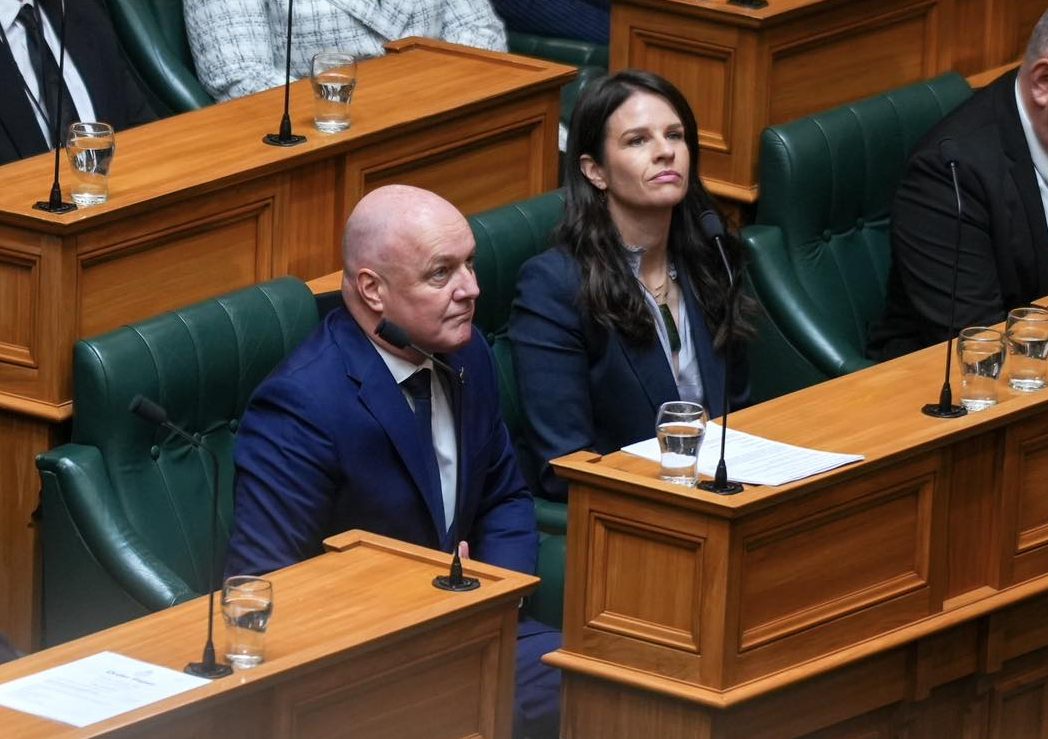
The coalition Government is proposing to replace NCEA with new national qualifications that “ensure young people have the knowledge and skills they need to succeed”.
“We want every New Zealander to reach their full potential and contribute to a thriving economy, and that starts with our students,” Prime Minister and Botany MP Christopher Luxon says.
“The evidence shows NCEA is not consistent and can be hard to navigate.
“It doesn’t always deliver what students and employers need.
“New Zealand’s future depends on our young people having the skills to succeed in the modern global economy.
“We’re backing Kiwi kids with a new internationally benchmarked national qualification designed to do exactly that.”
Luxon says while NCEA was designed to be flexible, for many students that flexibility has encouraged a focus on simply attaining the qualification.
“That has come at the cost of developing the critical skills and knowledge they need for clear pathways into future study, training or employment,” Education Minister Erica Stanford says.
The proposal includes:
Removing NCEA Level 1, requiring students to take English and Mathematics at year 11, and sit a foundation award (test) in numeracy and literacy.
Replacing NCEA Levels 2 and 3 with two new qualifications (The New Zealand Certificate of Education at year 12 and the New Zealand Advanced Certificate of Education at Year 13).
Requiring students to take five subjects and pass at least four to attain each certificate.
Marking clearly out of 100 with grades that make sense to parents like A, B, C, D, E.
Working with industry to develop better vocational pathways so students are getting the skills relevant to certain career pathways.
The new qualification will be underpinned by a new national curriculum for years 9-13 that will clearly outline what students need to learn in each subject and when, providing more consistency.
“This is about making sure our national qualification opens doors for every young person, whether they’re heading into a trade, university, or straight into work,” Stanford says.
“Parents can be assured their kids will get the best possible opportunity to thrive.
Consultation on the changes is open until September 1 before final decisions are made by the end of the year.
The changes are proposed to be phased in from next year, beginning with the new national curriculum in 2026, the Foundational Skills Award in 2028, and the new Certificates of Education in 2029 and 2030 for years 12 and 13.
During the transition period, students will be assessed through the current NCEA and curriculum or the new qualification and updated curriculum.

But the Labour Party says the Government’s proposed abolishment of NCEA leaves many questions unanswered.
“Schools and families need certainty about just what exactly these changes mean for their students and their future qualifications,” Labour education spokesperson Willow-Jean Prime says.
“Schooling is already an anxious period for our young people and the last thing they need is more confusion.
“Previous rushed overhauls have led to students being the guinea pigs for failed change, like national standards, so we must get this right.
“Any change must be done with proper sector consultation and be based on evidence that it will lead to better outcomes for all students.
“I’m worried that teachers, parents and whānau have such a short window to share their voices after being excluded in the months leading up to this announcement.
“Already I’m hearing from schools and parents worried about what this all means for their students and how hasty these proposed changes are.
“NCEA is not perfect, which is why we started to implement a fully consulted change process that this Government delayed.
“Rushing changes through now for political expediency isn’t the answer.
“The Government must ensure any change is evidence-based, has students’ futures in mind and allow time for proper consultation so that we can get this right for all young people and children.”

And the Green Party says scrapping the entire NCEA system is “throwing the baby out with the bathwater”.
“Every child deserves a high-quality, free, accessible public education that gives them the best possible start in life,” Greens education spokesperson Lawrence Xu-Nan says.
“When NCEA was introduced, it was the result of work by educators and communities to move Aotearoa away from a system that was narrow, constraining, and rationed.
“NCEA, while not perfect, recognised learning takes place in different ways, and that young people deserve opportunities to succeed in ways that fit them.
“Today’s announcement is another classic case of the Government favouring one-size-fits-all approaches.
“Our education system is too important to be reduced to a single, rigid framework that will leave many behind.
“Our rangatahi are so much more than just workers-in-training.
“Education should not be designed simply as an add on to the labour market or to conform to narrow economic thinking, but to grow the whole person.”







